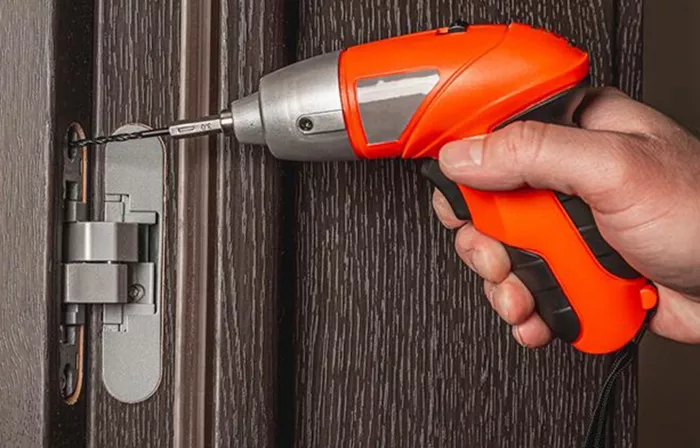Electric screwdrivers have revolutionized the way we handle various DIY projects, repairs, and assembly tasks. These handy tools provide efficiency, precision, and convenience, making them an essential addition to any toolkit. This article delves into the features, types, benefits, and considerations when choosing an electric screwdriver, helping you make an informed decision.
Key Features of Electric Screwdrivers
Electric screwdrivers come with a range of features designed to enhance their performance and ease of use:
Power Source: Typically powered by rechargeable batteries, offering cordless convenience and consistent performance.
Torque Control: Adjustable torque settings allow for precise control, preventing over-tightening or stripping of screws.
Speed Settings: Variable speed controls enable users to match the tool’s speed to the task at hand.
Ergonomic Design: Comfortable grips and lightweight construction reduce user fatigue during extended use.
LED Lights: Integrated LED lights illuminate the work area, ensuring accuracy even in low-light conditions.
Bit Compatibility: Interchangeable bits accommodate various screw types and sizes, increasing versatility.
Types of Electric Screwdrivers
Electric screwdrivers come in different types, each suited to specific tasks and user preferences:
1. Cordless Electric Screwdrivers
Cordless electric screwdrivers offer maximum portability and flexibility, making them ideal for tasks in various locations without the need for a power outlet.
Key Features
Battery-Powered: Typically powered by lithium-ion batteries for long-lasting performance.
Compact Design: Lightweight and easy to maneuver in tight spaces.
Quick Charging: Fast-charging capabilities reduce downtime.
Popular Models
DeWalt DCF680N2: Features motion-activated variable speed and a gyroscopic handle for precise control.
Black+Decker BDCSFL20C: Combines a cordless screwdriver with an integrated flashlight for added convenience.
See also: How To Remove A Stripped Screw: A Step-By-Step Guide
2. Corded Electric Screwdrivers
Corded electric screwdrivers provide consistent power without the need for recharging, making them suitable for tasks that require prolonged use.
Key Features
Continuous Power Supply: Eliminates the need for battery recharging or replacement.
Higher Torque: Often provides greater torque for heavy-duty tasks.
Cost-Effective: Generally more affordable than cordless models.
Popular Models
Makita FS4200: Delivers high-torque performance with a comfortable grip and a lock-on button for continuous use.
SKIL 6225: Offers variable speed control and a reversible function for versatile applications.
3. Inline Electric Screwdrivers
Inline electric screwdrivers have a straight design, resembling a traditional manual screwdriver, providing excellent control and precision.
Key Features
Slim Profile: Ideal for reaching tight spaces and performing detailed work.
Lightweight: Easy to handle for prolonged periods without fatigue.
Simple Operation: Intuitive design for straightforward use.
Popular Models
Bosch GO: Features push-and-go activation, adjustable torque, and a compact design.
Milwaukee 2401-20 M12: Combines a slim profile with powerful performance and battery life.
4. Pistol-Grip Electric Screwdrivers
Pistol-grip electric screwdrivers have a handle design similar to a pistol, offering a comfortable grip and excellent leverage.
Key Features
Ergonomic Handle: Reduces strain on the hand and wrist during use.
High Torque: Suitable for more demanding tasks.
Versatile Use: Ideal for both home and professional applications.
Popular Models
Ryobi HP54L: Features a dual-speed gearbox and a comfortable grip for versatile use.
Hitachi DB3DL2: Offers dual-position handle conversion, allowing use in both pistol-grip and inline configurations.
See also: Husky Tool Boxes: Durability, Versatility, And Convenience
Benefits of Using Electric Screwdrivers
Electric screwdrivers offer several advantages over traditional manual screwdrivers:
Increased Efficiency: Significantly speeds up the process of driving and removing screws.
Enhanced Precision: Adjustable torque settings and speed controls provide precise control over screw depth and tightness.
Reduced Fatigue: Ergonomic designs and motorized operation minimize physical effort and strain.
Versatility: Compatible with various bits and attachments, making them suitable for a wide range of tasks.
Convenience: Cordless models offer portability and ease of use in different locations.
Considerations
When selecting an electric screwdriver, consider the following factors to ensure it meets your needs:
Power Source: Decide between corded and cordless models based on your usage patterns and preference for portability.
Torque and Speed: Look for adjustable torque and speed settings to match the tool’s performance to different tasks.
Battery Life: For cordless models, check the battery life and charging time to ensure it meets your work demands.
Ergonomics: Choose a model with a comfortable grip and lightweight design to reduce fatigue during extended use.
Bit Compatibility: Ensure the screwdriver is compatible with a wide range of bits to increase its versatility.
Brand and Warranty: Opt for reputable brands that offer reliable performance and good warranty coverage.
Conclusion
Electric screwdrivers are indispensable tools for DIY enthusiasts, professionals, and anyone who frequently works with screws. With their efficiency, precision, and convenience, they make various tasks easier and faster. By understanding the different types of electric screwdrivers and their features, you can choose the right model that suits your needs and enhances your toolkit. Whether you opt for a cordless model for its portability or a corded one for its continuous power, an electric screwdriver will undoubtedly become a valuable asset in your collection of tools.
Related Topics:

